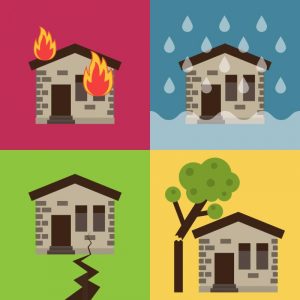 Too often, community associations find themselves being reactive as opposed to proactive when it comes to dealing with disasters. The most common “disaster” for many boards and property managers is the occasional pipe burst; however, disaster can come in many shapes or sizes. Here are a few things your community can do to be prepared:
Too often, community associations find themselves being reactive as opposed to proactive when it comes to dealing with disasters. The most common “disaster” for many boards and property managers is the occasional pipe burst; however, disaster can come in many shapes or sizes. Here are a few things your community can do to be prepared:
Insurance: perform an annual audit of the association’s insurance policy to ensure the community is properly covered.
Education: typically, it is not the association that is underinsured, it is the owner. This means that many owners do not understand the importance of having insurance nor do they understand how insurance works when there is a disaster. Therefore, an association should make sure the owners are regularly made aware of (1) their insurance obligations, (2) the deductibles under an association’s policy, and (3) the application of deductibles when there is an insurable event.
Inspection: fire and water are probably the two most common sources of catastrophe for a community association. Sometimes these catastrophes can be lessened or even avoided altogether if an association takes preventative measures. For example, it should have a system in place for periodically inspecting life-safety items, such as fire sprinklers, as well as for other high risk components, such as hot water heaters.
Preparation: every association should take the time to prepare a disaster plan. A disaster plan should include details on dealing with small casualties, such as a list of reliable vendors in the event of a pipe burst, along with the process for evaluating the damage and filing an insurance claim when necessary. In addition, the disaster plan should include life saving measures (e.g., a detailed evacuation route in the event of a fire or other similar catastrophe). High rise or stacked condominiums, especially, should have periodic practice drills for fires and tornados. Finally, the association should ensure that the disaster plan is made available to all owners and occupants so everyone knows where to go and what to do.
Mitigation: unfortunately, disaster does strike. When it happens, the association and the affected owners and occupants need to take steps to mitigate the damages. This may include, for example, drying out a unit after a water leak to minimize potential mold growth, or removing items of value when there is an ongoing incident.
In sum, adequate preparation for disaster can make the difference between a large insurance claim and a small one. If your community association is unclear about any of the foregoing items, it is best to contact your property manager or attorney.
